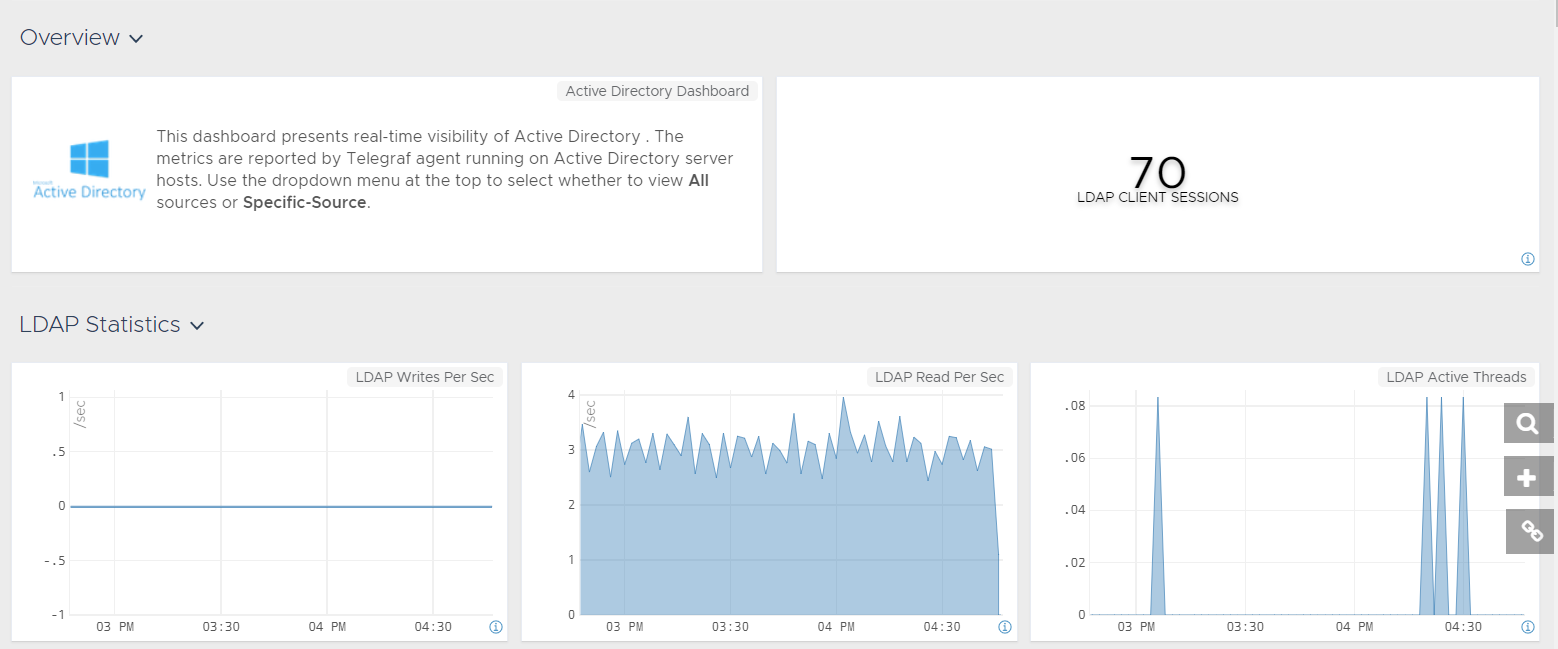This page provides an overview of what you can do with the Active Directory integration. The documentation pages only for a limited number of integrations contain the setup steps and instructions. If you do not see the setup steps here, navigate to the Operations for Applications GUI. The detailed instructions for setting up and configuring all integrations, including the Active Directory integration are on the Setup tab of the integration.
- Log in to your Operations for Applications instance.
- Click Integrations on the toolbar, search for and click the Active Directory tile.
- Click the Setup tab and you will see the most recent and up-to-date instructions.
Active Directory Integration
Active Directory (AD) is a Windows OS directory service. This integration installs and configures Telegraf to send Active Directory metrics into Tanzu Observability. Telegraf is a light-weight server process capable of collecting, processing, aggregating, and sending metrics to a Wavefront proxy.
In addition to setting up the metrics flow, this integration also installs a dashboard. Here’s a section of a dashboard displaying Active Directory metrics:
